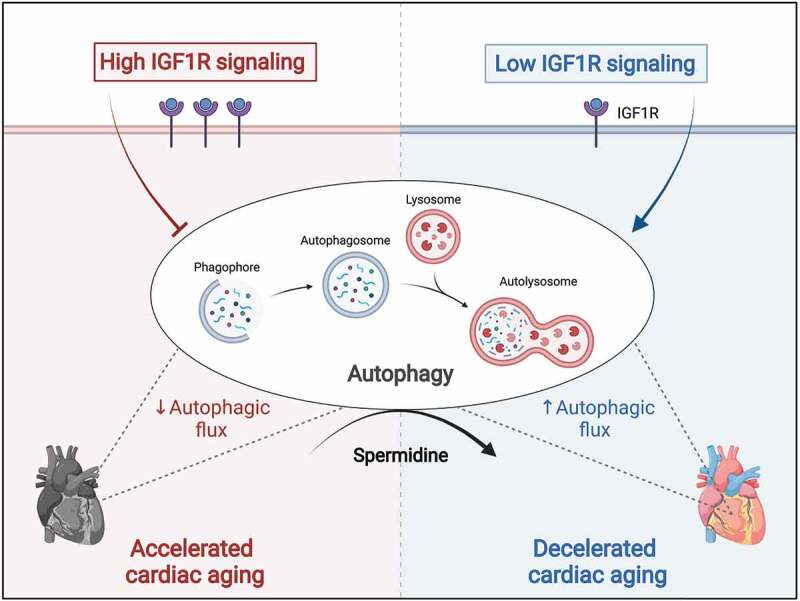Figure 1.

Autophagy determines the effect of IGF1 (insulin-like growth factor 1) signaling on the aging heart. In mice, cardiomyocyte-specific overexpression of human IGF1R (IGF1 receptor) accelerates cardiac aging, leading to premature heart failure, despite initially inducing physiological cardiac hypertrophy and superior function. Treatment with the autophagy inducer spermidine protects aged IGF1Rtg mice from heart failure, suggesting that reduced autophagic flux underlies the late-life detrimental impact of increased cardiac IGF1R signaling. By contrast, low IGF1R signaling in mice harboring a dominant-negative mutation in the PIK3CA/p110α isoform of phosphoinositide 3-kinase (PI3K) – which is a key downstream effector of IGF1R – decelerates cardiac aging and extends longevity in an autophagy-dependent manner, as indicated by limited cardioprotection upon treatment with the autophagy inhibitor hydroxychloroquine. This figure was created with BioRender.com.
